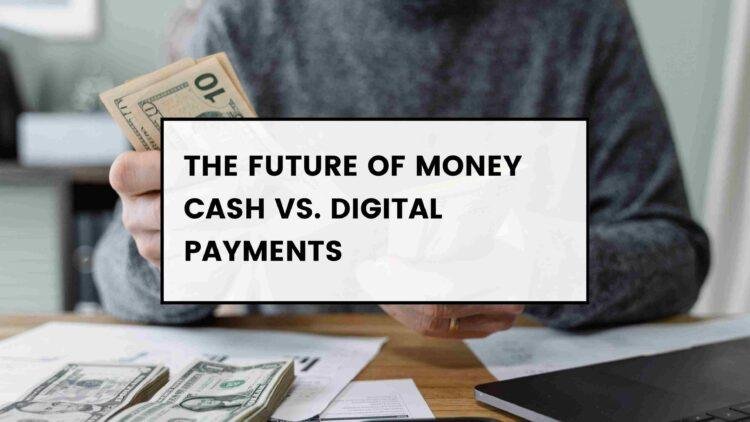Money has always been at the heart of human civilization, evolving from barter systems to coins, paper currency, and now digital payments.
But as technology advances, one question looms large: Will cash become obsolete?
In today’s fast-paced world, digital wallets, contactless payments, and cryptocurrencies are gaining popularity. Countries like Sweden and China are already moving toward cashless societies. But what does this mean for the future of money? Will physical cash disappear entirely, or will it coexist with digital alternatives?
This article dives into the future of money, exploring the rise of digital payments, the challenges of a cashless world, and whether cash will truly become a thing of the past.
The Rise of Digital Payments
Why Are Digital Payments Taking Over?
Digital payments have become the norm for many people worldwide. Here’s why:
- Convenience: Paying with a smartphone or card is faster and easier than carrying cash.
- Security: Digital transactions reduce the risk of theft and loss.
- Globalization: Online shopping and cross-border transactions rely on digital payment systems.
Popular Digital Payment Methods
- Mobile Wallets: Apple Pay, Google Pay, and Samsung Pay.
- Contactless Cards: Tap-to-pay credit and debit cards.
- Cryptocurrencies: Bitcoin, Ethereum, and other digital currencies.
The Role of Cryptocurrencies
Cryptocurrencies are reshaping the financial landscape. Unlike traditional money, they are decentralized and operate on blockchain technology.
Benefits of Cryptocurrencies
- Transparency: Blockchain ensures secure and transparent transactions.
- Lower Fees: Cross-border payments are cheaper compared to traditional banks.
- Financial Inclusion: Cryptocurrencies provide access to financial services for the unbanked.
Challenges of Cryptocurrencies
- Volatility: Prices can fluctuate dramatically.
- Regulation: Governments are still figuring out how to regulate digital currencies.
- Adoption: Not everyone is tech-savvy enough to use cryptocurrencies.
The Shift Toward a Cashless Society
Countries like Sweden and China are leading the charge toward cashless economies. In Sweden, cash transactions account for less than 10% of all payments. Similarly, China’s mobile payment platforms, like Alipay and WeChat Pay, dominate everyday transactions.
Advantages of a Cashless Society
- Efficiency: Faster transactions and reduced handling costs.
- Tracking: Digital payments make it easier to track spending and combat fraud.
- Hygiene: Contactless payments reduce the spread of germs, a lesson learned during the COVID-19 pandemic.
Disadvantages of a Cashless Society
- Privacy Concerns: Digital transactions can be tracked, raising privacy issues.
- Exclusion: Not everyone has access to smartphones or bank accounts.
- Technical Issues: System outages or cyberattacks can disrupt digital payment systems.
Will Cash Become Obsolete?
While digital payments are rising, cash is unlikely to disappear anytime soon. Here’s why:
1. Cultural and Generational Preferences
Older generations and people in rural areas often prefer cash due to familiarity and accessibility.
2. Backup in Emergencies
Cash remains a reliable backup during power outages or technical failures.
3. Legal Tender Status
In most countries, cash is still considered legal tender, meaning it must be accepted for payments.
The Future of Money: A Hybrid Model
The future of money is likely to be a hybrid model where cash and digital payments coexist. While digital payments will dominate, cash will still play a role in certain situations.
Key Trends to Watch
- Central Bank Digital Currencies (CBDCs): Governments are exploring digital versions of their national currencies.
- Biometric Payments: Fingerprint and facial recognition for secure transactions.
- AI in Finance: Artificial intelligence will streamline payment processes and detect fraud.
What do you think about the future of money? Will cash become obsolete, or will it remain a part of our lives? Share your thoughts in the comments below! For more insights on finance and technology, subscribe to our newsletter.
















